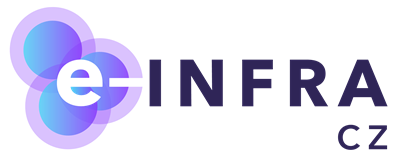This is the first national as well as international inter-city distribution of quantum keys in the Czech Republic, specifically to Cieszyn, Poland. The implementation of the distribution is the result of cooperation between CESNET and IT4Innovations National Supercomputing Center at VSB - Technical University of Ostrava and the Polish PSNC academic network.
The quantum channel was assembled on 1st July 2021 on a 75-kilometre fibre-optic route between Ostrava and Cieszyn, Poland, with an average quantum error rate of 2.19%. The implementation was carried out within the framework of the European OpenQKD project, the participant of which is IT4Innovations. The European Commission has provided the OpenQKD consortium with EUR 15 million to develop a testbed quantum network with various use cases. As part of its ongoing network upgrade, CESNET is ready to implement quantum channels on fiber-optic infrastructure, including connections to international infrastructures. This forms the basis of the first quantum network in the Czech Republic.
The security of services on the Internet today is based on the provision of keys using asymmetric cryptography. However, with the advent of quantum computing, there is an increasing risk that these classical methods will be cracked due to the significant reduction in computational complexity. Thus, quantum computers will take significantly less time than conventional computers to find solutions to the complexity problems commonly used in cryptography today.
"The experiment we are conducting in the Czech Republic involves the use of quantum cryptography to secure the management of highly demanding computations with the involvement of two supercomputing centers, the Czech IT4Innovations and the Polish PSNC," says Miroslav Vozňák, Head of the IT4Innovations Big Data Analysis Lab and the coordinator of the entire project for the Czech Republic.
The future of secure, decryption-resistant communication on quantum computers lies in technologies based on Quantum Key Distribution (QKD). Essentially, this involves the generation of random keys between two parties, where the key is encoded into the quantum states of photons distributed through a quantum channel. Such a channel is highly resistant to eavesdropping, both because there is an uncertainty relation that allows such eavesdropping to be detected and because it is not possible to duplicate an unknown quantum state. These physical properties of quantum mechanics are exploited in QKD, making it a technology that enables the highest level of security known. It is therefore envisaged that QKD technology will play an important role in promoting the competitiveness of the European industry and will contribute to enhancing data security in banking, commerce, public administration offices, and in the transmission of personal data such as medical records. The newly commissioned system on the Ostrava-Cieszyn route should also provide new insights into the functioning of QKD.
"QKD is a promising way to secure information transmission. Unlike traditional methods, it is based on physics, not mathematics. However, it has not been used much yet. The problem is the distribution of the key itself between two communicating parties. The moment we ensure that the key distribution cannot be intercepted, the use of symmetric cryptography will be much more secure. This is what quantum key distribution is trying to do," explains Josef Vojtěch, Head of the Optical Networks Department at CESNET.
CESNET works closely with its members in the field of a quantum internet. For example, the Brno University of Technology and the Technical University of Ostrava, it has been working on network security in the post-quantum era for a long time, including the Czech Ministry of the Interior's project titled Network Cybersecurity in Post-Quantum Era (NESPOQ - VJ01010008), which is supported by the expert guarantor, namely the National Cyber and Information Security Agency. In the field of the quantum interconnection of ultrastable optical frequency quantum sources, cooperation has also been ongoing for a long time with Palacký University in Olomouc and the Institute of Scientific Instruments of the Czech Academy of Sciences in Brno.

